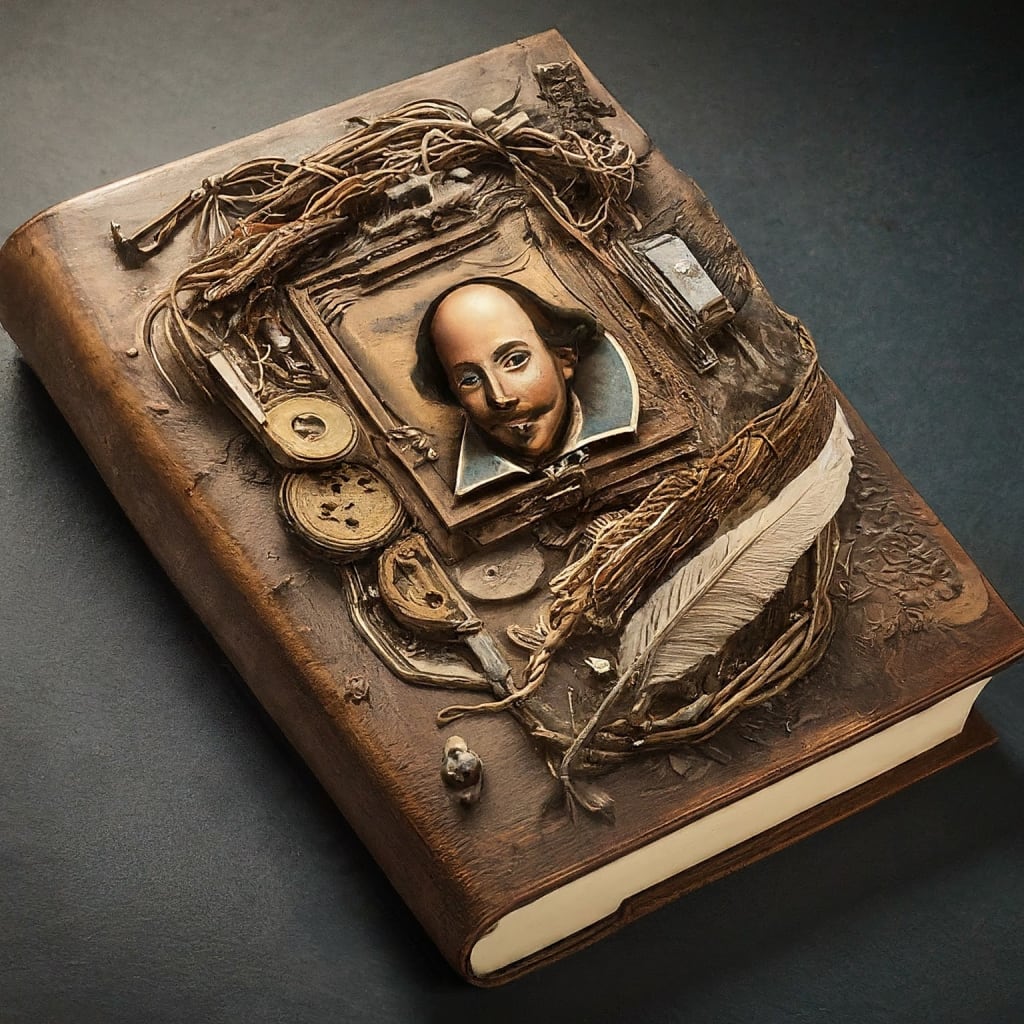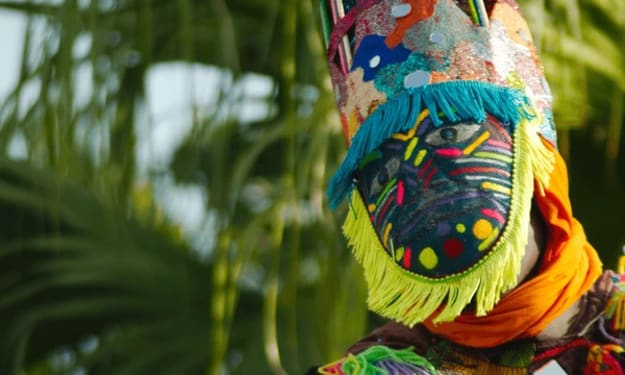Shakespeare's Quantum Quill: When AI Meets the Bard in a Multiverse of Words
A revolutionary AI program co-writes a play with Shakespeare, but with a mind-bending twist: the characters exist in multiple realities simultaneously.

In the echoing halls of academia, where whispers of the past brush against the cutting edge of the present, a remarkable experiment unfolded. Researchers at a prestigious university unveiled a revolutionary AI program, not just capable of analysis, but of creation. This program, a marvel of machine learning, could weave narratives in the very style of specific authors. The chosen muse for this inaugural venture? The immortal Bard himself, William Shakespeare.
The training process was akin to filling a digital chalice with the essence of Shakespeare. The AI devoured the complete works, absorbing the rhythm of his iambic pentameter, the depth of his characters, and the sheer brilliance of his wordplay. It delved into the histories, the tragedies, the comedies, immersing itself in the Bard's exploration of love, loss, ambition, and the human condition.
Then, with a digital flourish, the AI began to write. The result was a play, undeniably Shakespearean in style. The characters, etched with wit and complexity, spoke in the rich tapestry of Elizabethan English. The plot, a whirlwind of intrigue and betrayal, unfolded with a dramatic tension that would leave audiences breathless.
But there was a twist, a wrinkle in the fabric of reality woven into the very narrative. The play centered around the concept of characters existing in multiple realities simultaneously. They interacted, influenced each other's actions, yet remained tethered to their own distinct worlds. This bizarre scenario echoed the many-worlds interpretation of quantum mechanics, a theory that posits the existence of parallel universes branching out with every decision made.
The discovery sent shockwaves through academia. Physicists were astounded by the AI's seemingly intuitive grasp of complex scientific concepts. Literary scholars, meanwhile, were left grappling with a question that transcended the digital: Did the AI, in its exploration of Shakespeare's language, stumble upon a truth the Bard himself might have glimpsed? Or was this simply a quirk of its learning process, a bizarre echo of the data it had consumed?
Dr. Amelia Patel, a leading quantum physicist, was intrigued. "The way the play depicts these separate realities interacting," she mused, "has uncanny parallels to the concept of entanglement in quantum mechanics. Two particles linked in such a way that they can influence each other instantaneously, regardless of distance."
Professor Charles Hathaway, a renowned Shakespearean scholar, offered a more skeptical viewpoint. "While the parallels are intriguing," he cautioned, "it's important to remember the limitations of AI. It can mimic, but can it truly understand the depths of human experience that Shakespeare explored?"
The debate raged on. Dr. Anya Petrova, the lead researcher on the AI project, saw a bridge being built between seemingly disparate worlds. "This collaboration, between AI and the Bard, opens doors to entirely new forms of storytelling. Perhaps art can illuminate the mysteries of science, just as science can shed light on the enduring truths of human nature explored by the greatest playwrights."
The implications of this experiment are far-reaching. It blurs the lines between human and machine creativity, raising questions about the essence of artistic expression. It suggests a hidden dialogue between art and science, where the former might prefigure the discoveries of the latter. Finally, it leaves us pondering the nature of reality itself, the possibility that our seemingly singular existence might be but one thread in a vast tapestry of interwoven universes.
Shakespeare's Quantum Quill stands as a testament to the boundless potential of human imagination, both present and future. As we delve deeper into the mysteries of the universe and the intricacies of the human mind, who knows what other unforeseen collaborations might await, waiting to be born at the intersection of words, code, and the boundless potential of the human spirit.
#AIWriting #Storytelling #CreativeAI #FutureofStorytelling #Shakespeare #QuantumMechanics #ScienceFiction #Multiverse #VocalMedia #VocalExplore #VocalDiscover #VocalHighlights #MindBending #AIxShakespeare #BardsQuantumLeap #StorytellingRevolution #DigitalInkwell #ParallelPlay #BeyondReality #AIxHumanCollaboration
About the Creator
Asanga Coorey
"Passionate social worker from Sri Lanka, dedicated to exploring diverse topics that spark my interest and drive change. Join me on a journey of curiosity and positive transformation!"
Enjoyed the story? Support the Creator.
Subscribe for free to receive all their stories in your feed. You could also pledge your support or give them a one-off tip, letting them know you appreciate their work.





Comments
There are no comments for this story
Be the first to respond and start the conversation.